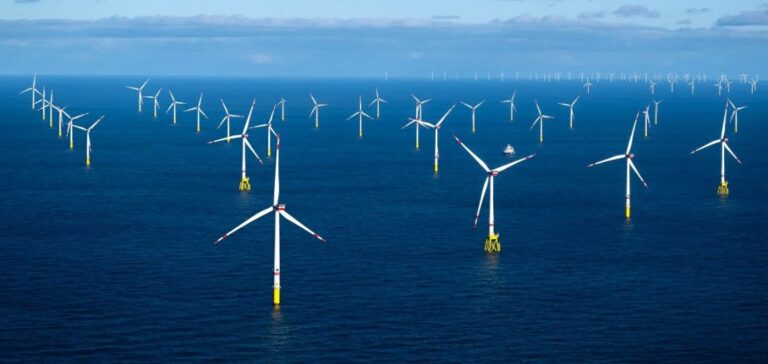The German government has raised serious concerns about an offshore wind farm project in the North Sea that uses turbines made in China. According to authorities, this project poses “very serious” security risks, particularly regarding espionage. The German Institute for Defence and Strategic Studies (GIDS), an organisation affiliated with the German military, has highlighted that the 16 wind turbines planned near Borkum could compromise the country’s energy security. Among the identified threats are political influence, espionage through sensors, and unauthorised access to the security protocols of critical infrastructure. The potential impact on energy supply is also a major concern.
In a press conference, Luisa-Maria Spoo, spokesperson for the Ministry of Economic Affairs, stressed that the government takes these concerns “very seriously.” GIDS experts have recommended “blocking” the use of Chinese wind turbines for this project, although no final decision has yet been made regarding the delivery of the turbines. The German government views the project as far more than just an economic initiative, emphasising that it concerns “critical infrastructure” that could lead to new security threat scenarios.
In-depth risk analysis
The German Ministry of the Interior also emphasised the need to “verify” components of critical infrastructure projects, such as wind farms, and to prevent their installation if security risks are identified. This measure aims to reduce dangerous dependencies and avoid situations that could expose the country to external threats. In this context, the government has highlighted the importance of being able to ban components deemed critical in energy installations and electrical grids, as has already been done in other technological sectors.
Chinese government responses and pressure on European manufacturers
In response, the Chinese government rejected Berlin’s concerns, stating there is “no evidence” that Chinese companies pose a threat to the national security of European countries. However, Chinese companies, such as Mingyang, have managed to enter the European wind turbine market through competitive pricing and delivery times. This growing pressure on European wind turbine manufacturers adds to broader concerns over national security and the protection of critical infrastructure in Europe.






















